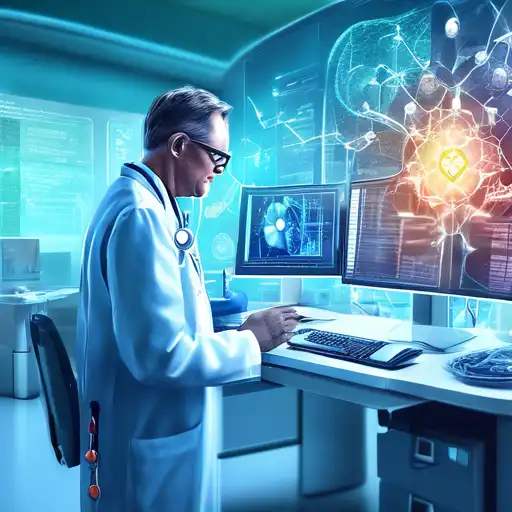The Transformative Impact of Data Science on Modern Healthcare
In the digital age, data science has emerged as a cornerstone of innovation across various sectors, with healthcare being one of the most significantly impacted. By harnessing the power of big data, machine learning, and predictive analytics, data science is revolutionizing how healthcare providers diagnose, treat, and prevent diseases. This article explores the multifaceted ways in which data science is transforming the healthcare industry.
Enhancing Diagnostic Accuracy
One of the most notable contributions of data science to healthcare is its ability to improve diagnostic accuracy. Advanced algorithms can analyze vast datasets of medical records and imaging to identify patterns that may elude human eyes. For instance, machine learning models are now capable of detecting early signs of conditions such as cancer, diabetes, and heart disease with remarkable precision, enabling earlier and more effective interventions.
Personalized Medicine
Data science is paving the way for personalized medicine, where treatments and medications are tailored to the individual's genetic makeup, lifestyle, and environment. By analyzing data from genetic tests, wearables, and electronic health records, healthcare providers can develop customized treatment plans that significantly improve patient outcomes.
Predictive Analytics in Public Health
Predictive analytics, a branch of data science, is being used to forecast outbreaks and manage public health crises more effectively. By analyzing trends in data from various sources, health officials can predict the spread of diseases like influenza or COVID-19 and allocate resources more efficiently to mitigate their impact.
Streamlining Healthcare Operations
Beyond patient care, data science is optimizing healthcare operations. From managing patient flow in hospitals to predicting equipment failures before they occur, data-driven insights are helping healthcare facilities operate more smoothly and cost-effectively. This not only improves the quality of care but also reduces operational costs.
Challenges and Ethical Considerations
Despite its benefits, the integration of data science into healthcare is not without challenges. Issues such as data privacy, security, and the ethical use of patient information are of paramount concern. Ensuring that data is used responsibly and that patients' rights are protected is essential as the healthcare industry continues to embrace data science.
In conclusion, data science is undeniably changing the face of healthcare. From enhancing diagnostic accuracy to enabling personalized medicine and improving public health responses, the potential of data science to improve patient outcomes and streamline healthcare operations is immense. However, as we navigate this transformative era, addressing the ethical and operational challenges will be crucial to fully realizing the benefits of data science in healthcare.
For more insights into how technology is shaping the future of healthcare, explore our articles on medical technology and big data in healthcare.
